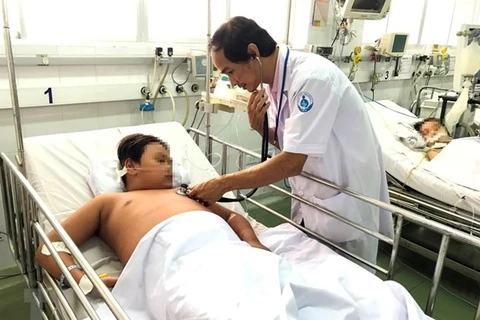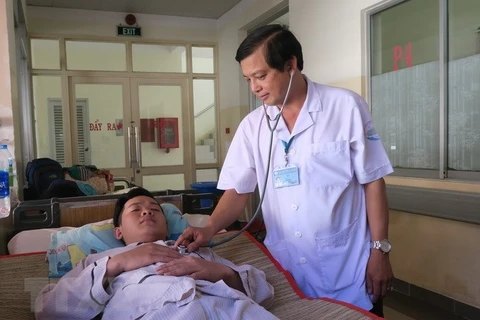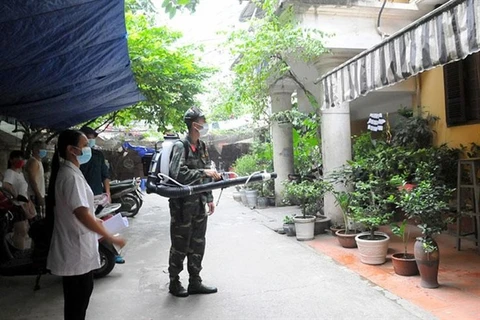HCM City (VNA) - Hospitals in Ho Chi Minh City are seeing more patients with dengue fever one month before the peak season for the disease.
The Hospital for Tropical Diseases has admitted 798 patients with the disease since last month, nearly double compared to the same period last year.
The hospital currently is treating 151 dengue fever patients, including 25 children. Of the total, 10 people are on a ventilator in the hospital’s intensive care room.
Dr Nguyen Thanh Phong of the hospital said that 20 to 25 patients with dengue fever were hospitalised in May every day. That number has increased to 70 a day.
The hospital has added more beds for patients with the disease. Two people diagnosed with dengue fever died last week, including one adult and one child.
At Paediatrics Hospital 1, 50 to 60 inpatients have been hospitalised each day since early June, including several patients with severe complications.
The city's Preventive Medicine Centre said the number of patients with dengue fever would rise during the rainy season when mosquitoes are more active.
A report from the city's Pasteur Institute found that 2,163 patients in 20 southern provinces and cities were diagnosed with dengue fever last week, an increase of 4 percent compared to the previous week and up 57 percent against the same period last year.
Binh Duong province's Health Department said the province had nearly 3,000 dengue fever incidences in the first six months, up 22 percent against the period last year.
Thuan An and Di An townships have had the highest number of cases in the province, accounting for more than 40 percent.
These townships are home to the large number of people whose accommodations are not stable, making it difficult for local health officials to control the disease.
In addition, local residents have not taken preventive measures at their homes to kill mosquitoes and larvae.
Dr Phong said that obese children with dengue fever often suffer more than others. Last year, 10 patients at the hospital died from the disease. Of these, half were obese.
The risk of getting shock among obese children is nearly 15 percent, while it is 4.6 percent among non-obese children, he added.
People with diabetes and hypertension can also experience severe complications when they contract dengue fever. It can also lead to premature birth among pregnant women, he said.-VNA
VNA
























